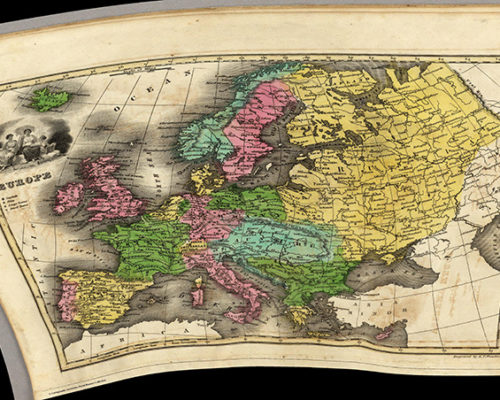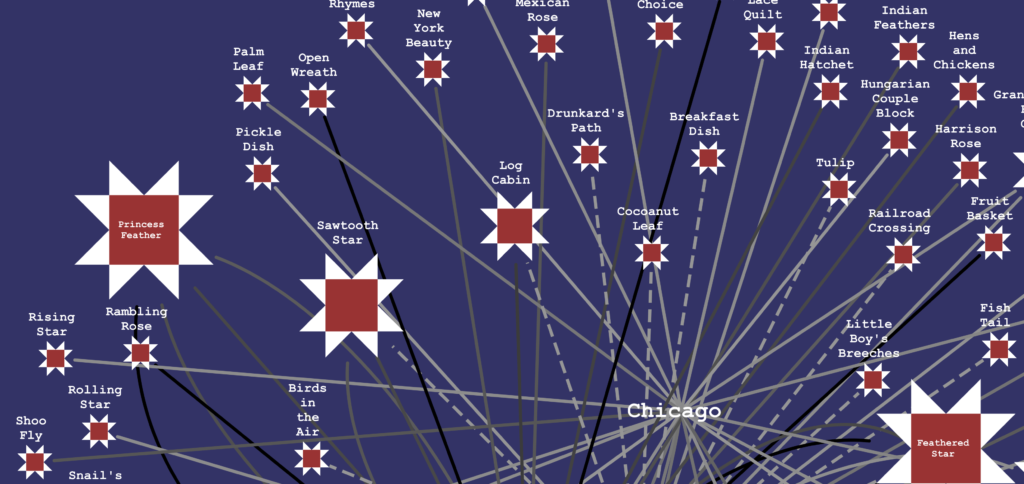In this short video I introduce and explain an easy-to-do usability testing method that can be applied to your next DH project. There is also a quick demonstration of the method on an existing DH-related website. DIY Usability Inspection Method for DH from DHSkillshare on Vimeo.
Editing Book Images with Photoshop
Photoshop skills are an important aspect of every DHer’s toolkit, and are even more crucial for those that rely on in-house photography. Almost all raw image files of artifacts must be edited in some way or another. This SkillShare shows the novice Photoshop user a few skills to enhance his or her repertoire through editing fairly simple objects — books.
This skillshare is intended for those projects focused on displaying a collection of book images online or through print. It can be especially useful to small archives, museums, libraries, or collectors that are in the process of creating an online repository of their collection. Additionally, the skills learned in this video may also be used to edit and enhance other raw images of items and artifacts aside from books.
Historical GIS: Exploring and georectifying historical maps
Many digital humanities and cultural heritage projects use mapping techniques to situate and analyze materials in spatial ways. Many of these projects also use freely available tools, such as Google Maps and OpenStreetMap, that plot historical data onto contemporary maps, thereby distorting users’ perceptions of past spatial arrangements, especially shifting geopolitical boundaries over time. Though a few commercial vendors provide…
DH Skillshare
DH Skillshare is an open-access knowledge resource for digital humanists. The goal of this website is to provide a set of written or recorded (video or audio) instructional posts covering tools that digital humanists might find of value, regardless of their field or institution. Student-created instructional posts may do one or more of the following: teach beginners an important, useful,…
Archive-It Overview and Tutoral
This presentation covers the web-archiving application Archive-It. Created in 2006 by the Internet Archive, this subscription services allows institutions to crawl and archive websites, which are hosted on the Internet Archive’s servers. In this podcast, I provide a brief overview of what Archive-It is, what it does, and why it might be a useful application for institutions interested in creating projects in the digital humanities. Drawing from my experience with Archive-It at Columbia University, I walk through the process for selecting and crawling websites, creating records, examining reports, and assessing the quality of crawls.
Screenhero Tutorial
As DHers know, research cannot always happen face-to-face. Working out a research-issue over the phone or Skype can be incredibly frustrating. Enter Screenhero, a relatively intuitive interface that allows researcher’s a solution to distance: the choice to superimpose their own computer screen or the application through which they’re working onto that of their colleague (and vice versa). Imagine the possibilities: help w/ creative coding, graphic design, website development, research, etc.
Download the application for free here: http://screenhero.com
Nevertheless, as you might notice upon visiting the site, the company ‘tutorial’ is really more of an advertisement than a critical demo of the application’s functions. So below I’ve included one of my own. In it, I explain the tool’s usefulness to DH, the application’s embeddable API (an incredible resource), it’s current limitations, and Screenhero’s possible future application.
SCREENHERO from DHSkillshare on Vimeo.
Curating a Flickr Page
This is a short tutorial with tips and instruction on curating a Flickr page. The screencast includes a brief explanation of uploading and a quick tour of some helpful areas of a Flickr account.
Curaing a Flickr page from DHSkillshare on Vimeo.
Encoding MP3s Using RazorLame/LAME
Encoding MP3s is essential toward making download-able sound recordings used for research and cultural studies in both scholarly and public humanities. Access to oration of literary works and musical sound recordings are an important factor in digital humanities. RazorLame is a free open source software for encoding MP3s that gives you more control and better options for perfecting sound-quality than…

